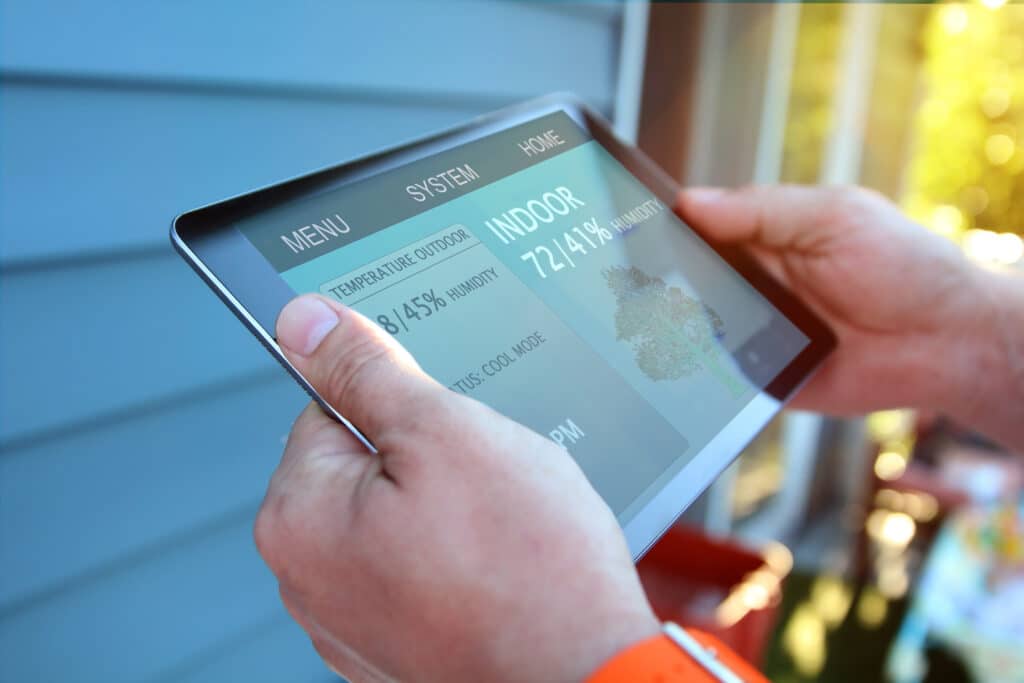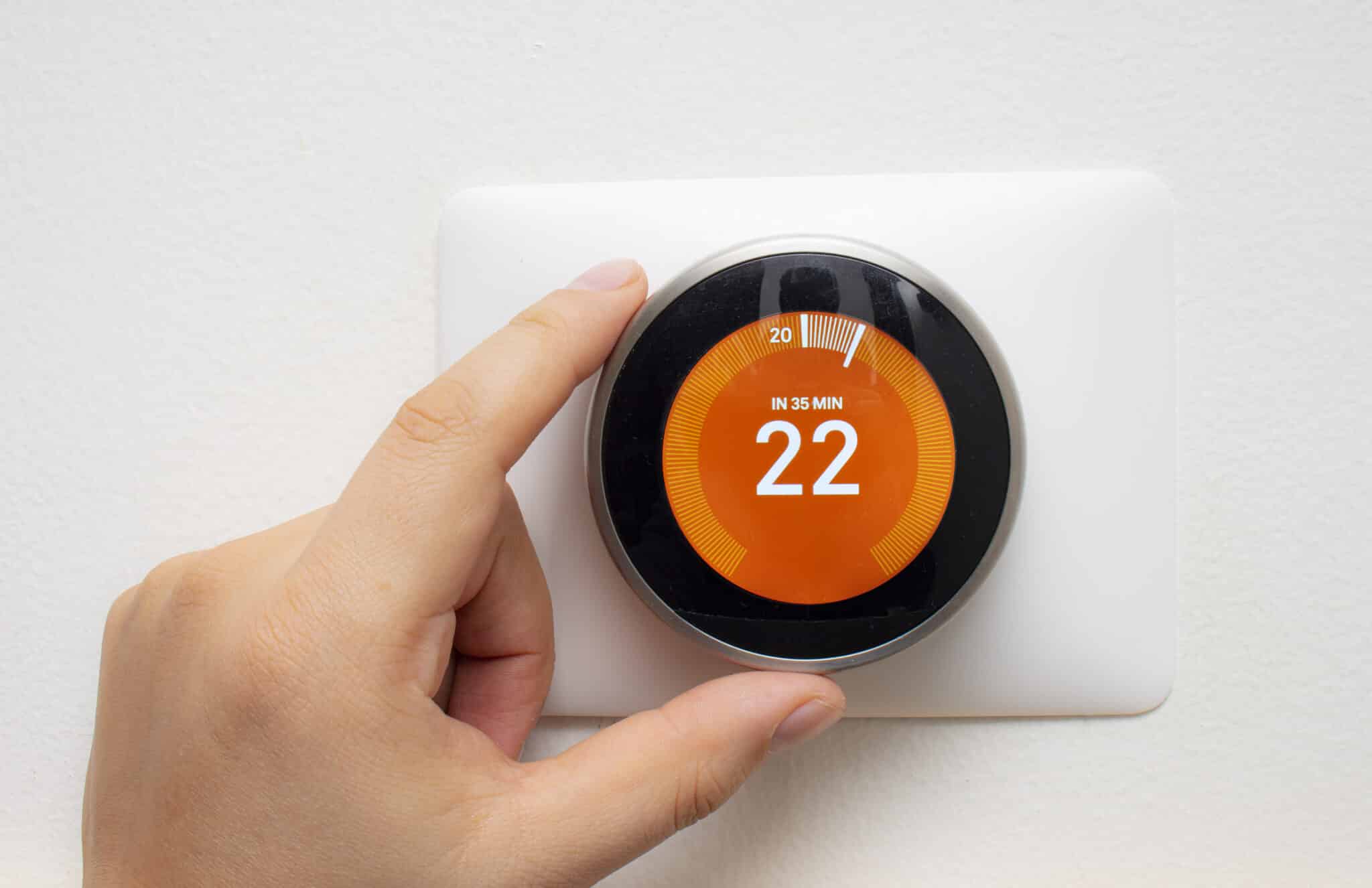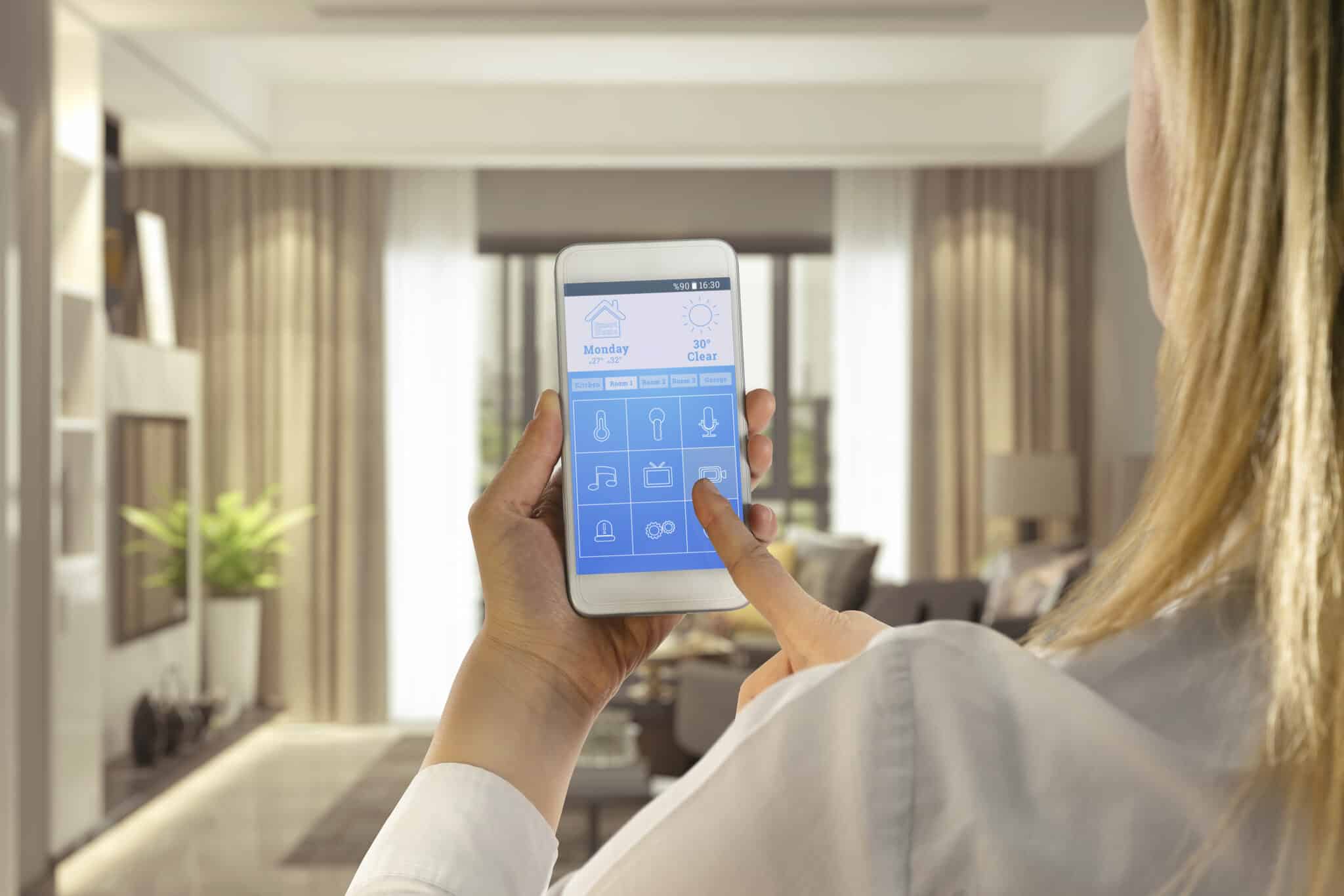
Air Quality Improvements with Smart Home HVAC Controls
Indoor air quality directly impacts health, productivity, and comfort. Poor air can trigger allergies, worsen asthma, and reduce energy levels. Modern homes now turn to smart HVAC controls for transformative air quality improvements. These systems intelligently monitor pollutants, adapt ventilation, and optimize filtration in real time. By merging cutting-edge technology with traditional climate control, smart HVAC solutions offer an efficient and reliable way to breathe cleaner, healthier air.
Understanding Indoor Air Quality
Indoor air quality (IAQ) defines the purity of air within your home and its direct impact on health, comfort, and productivity. Poor IAQ does not just diminish your quality of life—it can also trigger allergies, aggravate asthma, and contribute to long-term respiratory problems. Prioritizing air quality improvements is essential for creating a safe and healthy indoor environment.
Several common indoor pollutants threaten IAQ. Particulate matter like dust, pet dander, and pollen accumulates from daily activities and outdoor sources. Biological contaminants such as mold and bacteria thrive in damp spaces, posing serious health risks. Chemical pollutants, including volatile organic compounds (VOCs) emitted by cleaning products, furniture, or paints, silently degrade air quality. Even invisible threats like carbon monoxide and ozone, often overlooked, can infiltrate homes through faulty appliances or outdoor air.
These pollutants do not just exist in isolation—they interact and accumulate over time, making the air in your home potentially more polluted than the air outdoors. Identifying the sources of poor air quality and implementing targeted solutions, such as smart HVAC systems, ensures cleaner air and more sustainable air quality improvements. Smart systems actively monitor and neutralize these threats, keeping your home healthier and safer year-round.
The Role of HVAC Systems in IAQ
HVAC systems are more than just temperature regulators; they are vital to maintaining and improving indoor air quality (IAQ). Traditional HVAC systems impact IAQ by filtering, circulating, and ventilating air within a home. When properly maintained, they offer baseline air quality improvements by capturing large particles like dust and allergens, ensuring your living space feels fresh and clean.
However, the limitations of traditional HVAC systems often go unnoticed. Standard filters in these systems may capture visible particles but fail to trap microscopic threats like mold spores, bacteria, or fine pollutants. In some cases, these systems inadvertently harm IAQ. For instance, dirty air ducts or neglected filters can recirculate contaminants, worsening indoor pollution levels. Additionally, ventilation systems in older HVAC setups may not effectively introduce fresh outdoor air, allowing harmful pollutants to accumulate over time.
These shortcomings highlight the need for advanced solutions. Smart HVAC systems offer significant air quality improvements by addressing these limitations. They use advanced filtration technology, precise ventilation controls, and real-time air quality monitoring to optimize performance. By upgrading to smarter systems, homeowners can transform traditional HVAC units into powerful tools for cleaner, healthier air.
Investing in better HVAC technology is not just a choice—it is a commitment to lasting air quality improvements.

Advancements in Smart HVAC Controls
Smart HVAC systems represent a groundbreaking evolution in how homes achieve air quality improvements and energy efficiency. Unlike traditional systems that rely on rigid schedules, smart technology adapts dynamically to the conditions of your home. These advancements optimize performance, enhance comfort, and provide a new level of control over indoor air quality (IAQ).
AI for Intelligent Monitoring and Adjustments
Artificial intelligence (AI) plays a pivotal role in modern HVAC systems, ensuring real-time monitoring of key environmental factors such as air quality, temperature, and humidity. These systems do not just respond to preset thresholds—they learn and predict patterns to make proactive adjustments. For example, they can detect elevated particulate levels from outdoor pollutants and instantly enhance filtration and ventilation. This precision results in consistent air quality improvements tailored to your household’s needs.
IoT Integration for a Connected Ecosystem
The Internet of Things (IoT) takes smart HVAC controls to the next level by connecting your system to a wider ecosystem of devices. Integration with air purifiers, smart thermostats, and even weather forecasting tools allows the system to work in harmony, automating tasks that previously required manual input. For instance, your HVAC system can adjust settings based on outdoor air quality alerts, creating a seamless defense against pollutants.
User-Friendly Remote Control and Customization
Smart HVAC systems are designed for ultimate convenience. Using a smartphone app, homeowners can monitor air quality, change settings, and track energy usage from anywhere. Whether you are at work or on vacation, these systems ensure you are always in control of your indoor environment. The combination of remote access and intelligent customization offers peace of mind and tangible air quality improvements.
Energy Efficiency and Environmental Benefits
Beyond IAQ, smart HVAC systems significantly reduce energy consumption by operating only when necessary. This efficiency not only saves money but also reduces your environmental impact, aligning with modern sustainability goals.
With these advancements, smart HVAC controls provide an unmatched balance of IAQ improvements, convenience, and energy savings. They are the future of indoor air management, transforming homes into cleaner, healthier spaces.
How Smart HVAC Controls Improve Air Quality
Creating a healthier indoor environment has never been more important, and smart HVAC controls are leading the charge in air quality improvements. These advanced systems combine cutting-edge technology with intuitive functionality, ensuring your home not only feels comfortable but also promotes your well-being. They bring together real-time monitoring, enhanced filtration, and energy-conscious design to deliver a comprehensive air quality solution.
Real-Time Monitoring for Proactive Adjustments
Smart HVAC controls stand out for their ability to actively monitor air quality. Advanced sensors continuously track pollutants, allergens, and humidity levels, offering a full picture of your home’s air. The moment irregularities are detected—like a spike in VOCs or pollen—these systems respond instantly. They might activate advanced filtration, increase airflow, or adjust humidity to restore balance. This real-time adaptability ensures that air quality improvements happen consistently and automatically.
Enhanced Filtration and Intelligent Ventilation
Traditional systems often fall short in eliminating microscopic threats, but smart HVAC systems are designed to handle even the smallest particles. Equipped with HEPA filters, activated carbon, and UV light sterilization, they target allergens, mold, bacteria, and odors. Additionally, these systems optimize ventilation by intelligently managing fresh air intake and recycling, ensuring pollutants are filtered out without overburdening energy resources. This dual strategy ensures continuous airflow while maintaining air quality improvements.
Energy Efficiency with Maximum Performance
Smart HVAC systems do not just deliver cleaner air—they do it efficiently. With AI and IoT integration, these systems adapt to your household’s needs, operating only when required. For instance, during low occupancy, the system scales down to save energy without compromising air purity. This balance of efficiency and performance ensures reduced utility costs and a lower environmental impact while consistently achieving air quality improvements.
Investing in smart HVAC technology transforms your home into a cleaner, healthier sanctuary. With advanced monitoring, superior filtration, and energy-saving features, these systems are the future of IAQ management—delivering comfort, peace of mind, and unmatched air quality improvements.
Practical Benefits of Smart HVAC Controls in Everyday Homes
Smart HVAC controls are revolutionizing the way we approach air quality improvements, providing intelligent solutions that adapt to each household’s unique needs. These advanced systems bring more than comfort—they transform homes into healthier, safer spaces by actively monitoring and managing indoor air quality.
-
Tailored Solutions for Diverse Households
Every home faces different air quality challenges, and smart HVAC systems are designed to address them all. Pet owners often struggle with fur, dander, and odors, but smart HVAC systems use advanced filtration to remove these irritants from the air. Urban homes exposed to outdoor pollutants like smog and dust benefit from systems that monitor air quality in real time, filtering out fine particles to keep indoor air fresh. Even older homes with ventilation issues or mold concerns can experience significant air quality improvements as these systems adjust airflow and filtration for maximum efficiency.
-
Support for Allergy and Asthma Sufferers
For individuals with allergies or respiratory conditions, smart HVAC systems deliver life-changing benefits. These systems detect allergens like pollen and dust, activating high-efficiency filters to minimize their presence. Advanced features like humidity control and fresh air exchange further enhance the environment, creating a sanctuary for those sensitive to airborne irritants. This proactive approach ensures that clean air is a constant, not a luxury.
-
Year-Round Adaptability to Seasonal Challenges
Seasonal changes pose unique threats to indoor air quality, but smart HVAC systems adapt seamlessly. During winter, these systems regulate humidity to combat dry air while preventing the buildup of indoor pollutants in sealed homes. In spring, when pollen levels peak, enhanced filtration modes reduce allergens, ensuring air remains breathable. This dynamic adaptability delivers continuous air quality improvements throughout the year.
Smart HVAC controls are more than an upgrade—they are a necessity for healthier, more comfortable living. With their ability to adapt to individual needs and changing seasons, these systems deliver unmatched benefits for households looking to prioritize clean, safe air.
Seasonal Considerations for December in Watauga, TX
As December arrives in Watauga, TX, colder temperatures prompt homeowners to seal their homes against the chill. While this helps retain warmth, it often traps indoor pollutants, creating unique challenges for indoor air quality (IAQ). From stale air to increased allergens and dryness, winter months require targeted solutions, and smart HVAC controls are designed to address these seasonal concerns effectively.
Combating Poor Ventilation and Stagnant Air
In tightly sealed homes common during winter, pollutants such as carbon dioxide, household odors, and volatile organic compounds (VOCs) can accumulate. In Watauga, TX, where fluctuating weather may encourage sporadic use of heating systems, smart HVAC controls ensure consistent air circulation. By introducing fresh outdoor air while maintaining energy efficiency, these systems prevent stale, polluted air from lingering, improving overall air quality.
Managing Dry Air in Heated Homes
The cold, dry air of December can be harsh, especially when combined with indoor heating systems that deplete moisture levels. Residents in Watauga often face discomfort from dry skin, irritated sinuses, and respiratory issues. Smart HVAC systems equipped with humidity sensors monitor and adjust moisture levels in real-time. This helps create a balanced indoor environment that is both comfortable and healthier during the winter months.
Reducing Dust and Allergens in Sealed Homes
Closed windows and doors in winter often lead to a buildup of dust, pet dander, and other allergens. For homes in Watauga, TX, where seasonal allergens can still persist indoors, smart HVAC controls use advanced filtration systems, like HEPA filters, to capture microscopic particles. Additionally, these systems maintain consistent air circulation, preventing allergens from settling and contributing to respiratory discomfort.
With the challenges December presents in Watauga, TX, smart HVAC controls offer practical solutions to ensure clean, comfortable air. By improving ventilation, regulating humidity, and filtering allergens, these systems transform winter IAQ management into a seamless, efficient process.
Choosing the Right Smart HVAC System
Selecting the perfect smart HVAC system is more than a technical choice—it is an investment in comfort, efficiency, and lasting air quality improvements. By considering your home’s unique needs and the importance of professional installation and maintenance, you can ensure your system performs at its best for years to come.
Key Factors When Choosing a System
The right HVAC system should align with your home’s layout, air quality challenges, and lifestyle preferences. For families with allergies or asthma, prioritize systems with advanced filtration features like HEPA filters or UV sterilization. In homes prone to humidity issues, look for models with integrated humidity control. Ensure the system supports smart connectivity, enabling seamless integration with thermostats, purifiers, and mobile apps for remote access. Energy efficiency is another critical factor—select systems with energy-saving features that balance performance with lower utility costs. Choosing a system tailored to your needs ensures consistent air quality improvements.
The Value of Professional Installation
Proper installation by licensed professionals ensures your smart HVAC system delivers optimal performance. Experts assess your home’s ductwork, layout, and insulation to configure the system for maximum efficiency. Poor installation can lead to uneven airflow, higher energy costs, and reduced system lifespan. In places like Watauga, TX, where weather can vary, a professional’s local knowledge is invaluable in optimizing your system for seasonal challenges.
Ongoing Maintenance for Peak Performance
Regular maintenance is crucial for maintaining your smart HVAC system’s efficiency. Routine inspections, filter replacements, and software updates keep the system running smoothly, ensuring air quality improvements remain consistent. Proactive maintenance also prevents costly breakdowns and extends the system’s life, protecting your investment while maintaining a healthy home environment.
By carefully selecting the right system, relying on professional installation, and committing to regular maintenance, you will unlock the full potential of your smart HVAC system—providing comfort, savings, and cleaner air every day.

Benefits Beyond Air Quality
Modern HVAC systems bring a wealth of benefits that go far beyond air quality improvements. They redefine home living with energy savings, seamless smart device integration, and advanced features designed for comfort and efficiency.
Energy Efficiency That Pays Off
Today’s systems are engineered to deliver precise climate control while reducing energy waste. By using advanced sensors, they adjust heating and cooling based on room occupancy, time of day, and even outdoor weather. For instance, they automatically reduce energy use in unused spaces or during optimal outdoor conditions. This targeted efficiency not only lowers monthly utility bills but also minimizes your home’s carbon footprint, making it a smart and sustainable investment for the long term.
Smart Integration for Effortless Living
These systems create a cohesive home environment by integrating with other smart devices. By syncing with air purifiers, thermostats, and voice-activated assistants, they offer unparalleled convenience. Imagine a system that detects pollen levels from a weather app and boosts filtration to maintain air quality improvements. You can monitor and control your system remotely via a smartphone app, allowing you to adjust settings no matter where you are. This flexibility enhances both convenience and peace of mind.
By combining energy efficiency with seamless smart home connectivity, modern HVAC systems offer more than comfort—they deliver savings, convenience, and a healthier, smarter way of living.
FAQS About Air Quality Improvements
-
What are the main benefits of smart HVAC controls?
Smart HVAC controls provide tailored air quality improvements, energy efficiency, and advanced convenience. These systems automatically monitor and optimize temperature, ventilation, and filtration, creating a healthier home environment while lowering utility costs. With remote access and integration with smart home devices, they make managing comfort effortless.
-
How do smart HVAC systems detect and remove pollutants?
Equipped with advanced sensors, these systems continuously track air quality metrics like particulate levels, allergens, and VOCs. When pollutants are detected, they activate high-efficiency filters, UV light sterilization, or enhanced airflow settings. This proactive response ensures pollutants are removed quickly, keeping your air consistently clean and safe.
-
Are smart HVAC systems compatible with older homes?
Yes, most smart HVAC systems can be adapted to older homes. Professional installation may involve upgrading existing ductwork or adding smart controls, ensuring compatibility. This makes it possible to enjoy energy savings, modern convenience, and consistent air quality improvements, even in older properties.
-
What maintenance is required for smart HVAC systems?
Routine maintenance includes changing filters, cleaning vents, and updating software. Annual professional inspections help identify issues and keep the system running efficiently. These tasks are crucial for maintaining long-term performance and ensuring uninterrupted air quality improvements.
-
Can smart HVAC controls help with humidity levels?
Yes, they regulate humidity to maintain ideal levels. Whether reducing dryness in winter or managing high summer humidity, they ensure your home stays comfortable. Proper humidity control also prevents mold growth and minimizes allergens, further enhancing air quality improvements.
Trust One Hour Air Conditioning & Heating of Fort Worth to create the perfect living environment. Our innovative HVAC solutions provide superior air quality improvements, enhanced energy efficiency, and year-round comfort—delivering the quality and care your family deserves.


